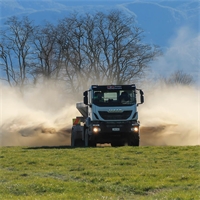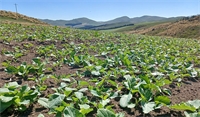30Aug
Agronomy Update Spring 2021
Words supplied by Craig Rodgers, Ruralco Group Manager On-Farm Sales.
Following another dry autumn, we have been hit with some extremes across winter. Nature has been the winner of late with extensive rainfall in some areas putting excess pressure on rivers, roads and across farmland. September and October weather can still be variable also, and the benefit of early sowing can sometimes be offset by minimal soil temperatures, inconsistent growth patterns and sometimes heavy rains. There have been minimal seed plantings through winter and preparation for early pasture renewal is yet to get underway. There have been minimal forage crops planted at time of writing and is a reflection on the previous year when there was little benefit in planting early due to the later spring. The variable soil temperatures throughout spring can affect the establishment of pasture and crops and can result in multiple weed strikes.
Cereals
Autumn sown cereals have endured a wetter than usual winter but seem to be handling the conditions well. Spring cereals will be sown later this year due to current conditions and on some heavier soils this may not be until later in spring. Early indications are that cereal sowings are back on previous years with some uncertainty around the milling industry, so spring sowings may vary dependant on what options become available in the spring, with the feed market pricing holding up currently but with limited long-term contracts available. Most varieties remain available with demand being driven by the recently released FAR cereal report that has identified some newer varieties that are performing well in local trials.
Pasture management
Initial indications are that pastures have been damaged over the winter period and there will be substantial re-grassing programmes to be completed in late spring and through the summer. Protection of good pastures will be important over the next couple of months especially when feed is required later in the spring, most damage happens in this period as stock numbers return to pastures and variable weather has wet and muddy underfoot conditions. Monitoring performance of each paddock during this period also helps identify those that are underperforming dependant on their growing characteristics, and recovery from winter grazing damage. We are likely to see renovation of pastures also through the spring period as Farmers monitor and plan out pasture renewal programmes. Once we have warmer spring conditions, keeping pasture cover within the optimal range of growth will help to achieve high growth rates, high utilisation, and high pasture quality.
Pasture renewal
There continues to be good discussion around the DairyNZ Forage Value Index (FVI) when selecting varieties. With the benefit of seasonal trends for each cultivar it can help identify what will suit your farm. Not all varieties are the same, therefore it is important to have a good balance of pasture species to suit the climate, rainfall, and irrigation you have on your farm. Check out the FVI here.
Competition
While the usual weed spectrum will be there this spring, it is important to remember any sort of competition in your crop or pasture affects the establishment and possible yield later. Put applications of chemicals on at the earliest possible dates and monitor closely for emerging weeds and disease. Work closely with the person monitoring your crops and who is applying chemical and ensure recommendations are completed as early as possible.
Seed bed preparation
While current conditions are not suitable for paddock preparation it is important to not take short cuts once underground conditions have improved. A planned spray programme to eliminate the previous crop and weeds will be just as important as leaving the paddock long enough for chemical to actively work this year. While time may be against you through this period, the long-term reward of preparing and establishing a crop or pasture will outweigh a rushed job. It is important you put the time into preparing a good seed bed, which is vitally important for establishment of pastures and crops. Seedbed consolidation helps conserve moisture and allows a seed drill to achieve the correct sowing depth.
Fodder beet
Variable spring conditions can affect the initial establishment and growth of fodder beet crops. Sowing dates are once again a hot topic of discussion but it mainly comes down to soil temperature as sunshine hours can be variable through September and October. The drilling of fodder beet is generally determined by the availability of contractors and locking in a set date can sometimes be the easiest, and then build your weed spray programme dependant on spring conditions. This year available varieties are similar to previous, and while there may be shortages on some varieties there are suitable or similar replacements available in the market. It is important you are sowing a variety that will suit your system and requirements in the winter. Yield can be determined by the growing season and as has happened in the past, a cooler than normal spring meant it is harder to get crops established and keep the weed competition at bay.
For more information, talk to your Ruralco Representative.
Related

The kitchen is referred to as the heart of the home, a place for gathering with family and friends a...
Read More

Farm fertiliser spreaders are one of the most valued contractors visiting farms, however ground spre...
Read More

Corteva™ Agriscience has farmers covered with a suite of post emergence forage brassica herbicides ...
Read More

Variable Rate Irrigation (VRI) systems have added another tool to the toolbox in agricultural water ...
Read More

Caitlin Hyde is completing her PhD on the appeal of eating insects in New Zealand. She has chosen a ...
Read More

This August, the Canterbury West Coast Air Rescue Trust hosted the Back to Base Challenge, an event ...
Read More